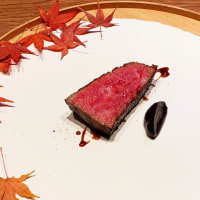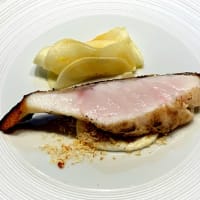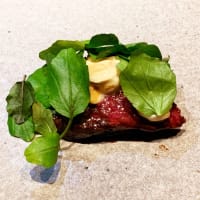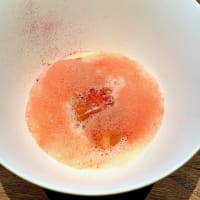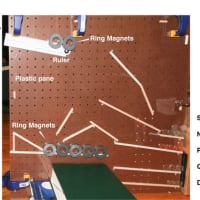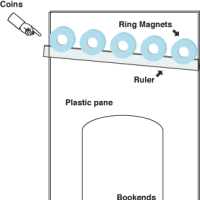“First, you must see the gates,” he replied, “for we have gates, though we never use them.”
I yielded politely, and before long we reached the moat again, at a point where it was spanned by a bridge. Over the bridge was a big gate, as white as ivory, which was fitted into a gap in the boundary hedge. The gate opened outwards, and I exclaimed in amazement, for from it ran a road—just such a road as I had left—dusty under foot, with brown crackling hedges on either side as far as the eye could reach.
“That’s my road!” I cried.
He shut the gate and said: “But not your part of the road. It is through this gate that humanity went out countless ages ago, when it was first seized with the desire to walk.”
I denied this, observing that the part of the road I myself had left was not more than two miles off. But with the obstinacy of his years he repeated: “It is the same road. This is the beginning, and though it seems to run straight away from us, it doubles so often, that it is never far from our boundary and sometimes touches it.” He stooped down by the moat, and traced on its moist margin an absurd figure like a maze. As we walked back through the meadows, I tried to convince him of his mistake.
“The road sometimes doubles, to be sure, but that is part of our discipline. Who can doubt that its general tendency is onward? To what goal we know not—it may be to some mountain where we shall touch the sky, it may be over precipices into the sea. But that it goes forward—who can doubt that? It is the thought of that that makes us strive to excel, each in his own way, and gives us an impetus which is lacking with you. Now that man who passed us—it’s true that he ran well, and jumped well, and swam well; but we have men who can run better, and men who can jump better, and who can swim better. Specialization has produced results which would surprise you. Similarly, that girl—”
Here I interrupted myself to exclaim: “Good gracious me! I could have sworn it was Miss Eliza Dimbleby over there, with her feet in the fountain!”
He believed that it was.
“Impossible! I left her on the road, and she is due to lecture this evening at Tunbridge Wells. Why, her train leaves Cannon Street in—of course my watch has stopped like everything else. She is the last person to be here.”
“People always are astonished at meeting each other. All kinds come through the hedge, and come at all times—when they are drawing ahead in the race, when they are lagging behind, when they are left for dead. I often stand near the boundary listening to the sounds of the road—you know what they are—and wonder if anyone will turn aside. It is my great happiness to help someone out of the moat, as I helped you. For our country fills up slowly, though it was meant for all mankind.”
“Mankind have other aims,” I said gently, for I thought him well-meaning; “and I must join them.” I bade him good evening, for the sun was declining, and I wished to be on the road by nightfall. To my alarm, he caught hold of me, crying: “You are not to go yet!” I tried to shake him off, for we had no interests in common, and his civility was becoming irksome to me. But for all my struggles the tiresome old man would not let go; and, as wrestling is not my specialty, I was obliged to follow him.
It was true that I could have never found alone the place where I came in, and I hoped that, when I had seen the other sights about which he was worrying, he would take me back to it. But I was determined not to sleep in the country, for I mistrusted it, and the people too, for all their friendliness. Hungry though I was, I would not join them in their evening meals of milk and fruit, and, when they gave me flowers, I flung them away as soon as I could do so unobserved. Already they were lying down for the night like cattle—some out on the bare hillside, others in groups under the beeches. In the light of an orange sunset I hurried on with my unwelcome guide, dead tired, faint for want of food, but murmuring indomitably: “Give me life, with its struggles and victories, with its failures and hatreds, with its deep moral meaning and its unknown goal!”
At last we came to a place where the encircling moat was spanned by another bridge, and where another gate interrupted the line of the boundary hedge. It was different from the first gate; for it was half transparent like horn, and opened inwards. But through it, in the waning light, I saw again just such a road as I had left—monotonous, dusty, with brown crackling hedges on either side, as far as the eye could reach.
I was strangely disquieted at the sight, which seemed to deprive me of all self-control. A man was passing us, returning for the night to the hills, with a scythe over his shoulder and a can of some liquid in his hand. I forgot the destiny of our race. I forgot the road that lay before my eyes, and I sprang at him, wrenched the can out of his hand, and began to drink.
It was nothing stronger than beer, but in my exhausted state it overcame me in a moment. As in a dream, I saw the old man shut the gate, and heard him say: “This is where your road ends, and through this gate humanity—all that is left of it—will come in to us.”
Though my senses were sinking into oblivion, they seemed to expand ere they reached it. They perceived the magic song of nightingales, and the odour of invisible hay, and stars piercing the fading sky. The man whose beer I had stolen lowered me down gently to sleep off its effects, and, as he did so, I saw that he was my brother.











